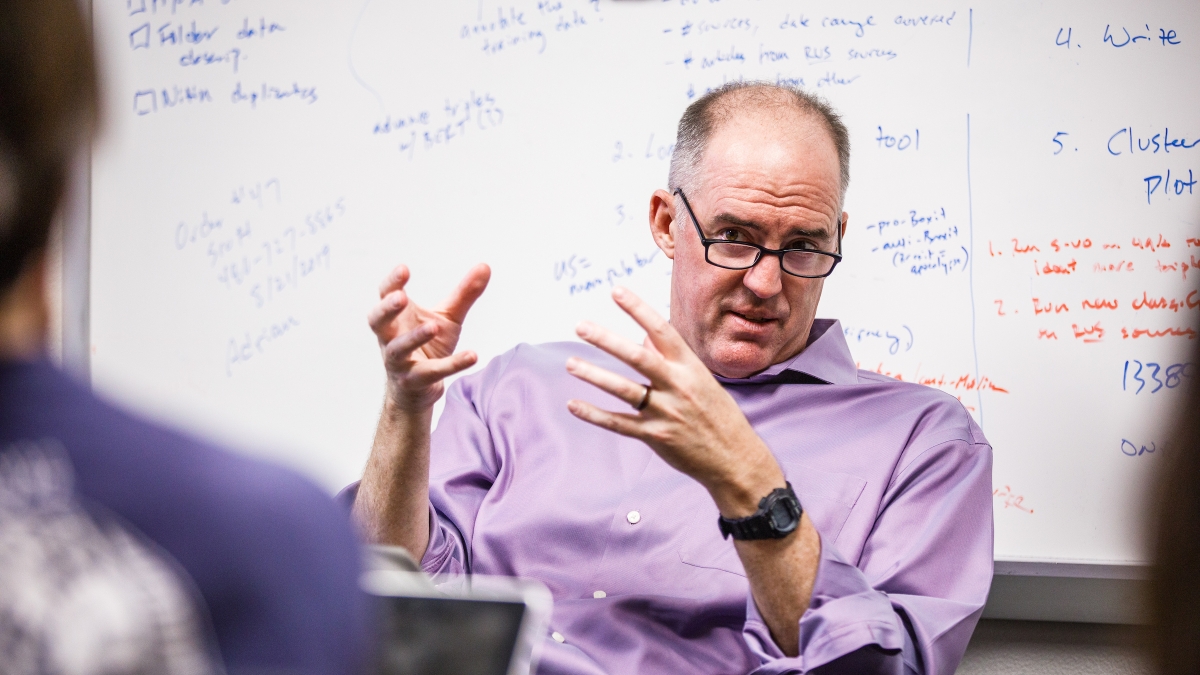There's an insidious threat that seeks to divide the nation and undermine our faith in democracy — disinformation. Often called fake news today, disinformation is the spread of false information with the willful intent to deceive.
Scott Ruston, a research scientist with the Global Security Initiative at Arizona State University, studies why disinformation is believable and how it spreads. In the latest ASU KEDtalk here, he offers tips on how to identify and defend yourself against fake news.
Video by Knowledge Enterprise
Ruston's talk is part of the ASU KEDtalks series. Short for Knowledge Enterprise Development talks, KEDtalks aim to spark ideas, indulge curiosity and inspire action by highlighting ASU scientists, humanists, social scientists and artists who are driven to find solutions to the universe’s grandest challenges.
Tune in to research.asu.edu/kedtalks to discover how researchers are attacking locust plagues, why baby steps are not the best way to achieve change and more.
Top photo by Andy DeLisle/ASU
More Law, journalism and politics

Exhibit uses rare memorabilia to illustrate evolution of US presidential campaigns
After one of the most contentious elections in history, a new museum exhibit offers a historical perspective on the centuries-old American process.“We The People! Electing the American President” had…

TechTainment conference explores the crossroads of law, technology, entertainment
What protections do writers, actors, producers and others have from AI? Will changing laws around name, image and likeness (NIL) eliminate less lucrative college sports programs?And what does…

How to watch an election
Every election night, adrenaline pumps through newsrooms across the country as journalists take the pulse of democracy. We gathered three veteran reporters — each of them faculty at the Walter…
